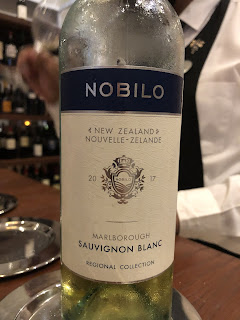Unpacking Napa -- Corporate or the Little Guy
It's wonderful when a brand new reader gives you an idea for a post. What happens though when she gives you just enough information to know that you have a topic, but don't know if it is how she wanted you to cover it. To most Americans, when they thing good wine, they think Napa Valley. Wedged among among a number of smaller mountain ranges, primarily the Mayacamas and Vaca, and plentiful bodies of water including San Pablo Bay that provides for the massive diurnal temperature differences in the southern part of the valley, Lake Berryessa in the northeast, and the Napa River that winds its way through the county, its a near perfect setup for growing, in particular, Cabernet Sauvignon that made Napa famous. With its now seemingly permanent drough-like conditions, hot summers with cool nights in much of the Valley, and enough natural sources of irrigation, winemakers are able to produce high alcohol content, ultra-expressive wines the likes of which are rarely seen elsewhere. Wh...
